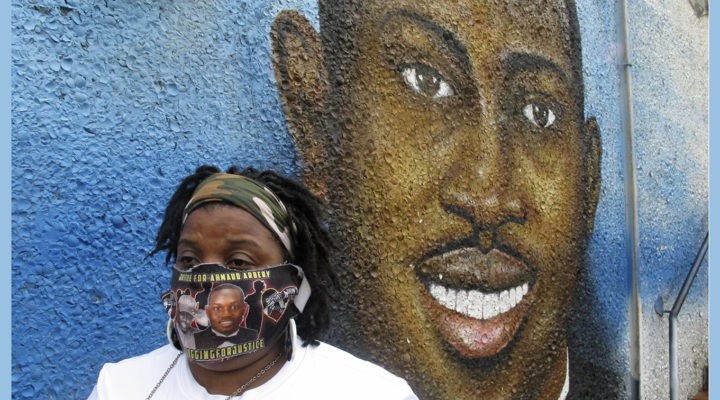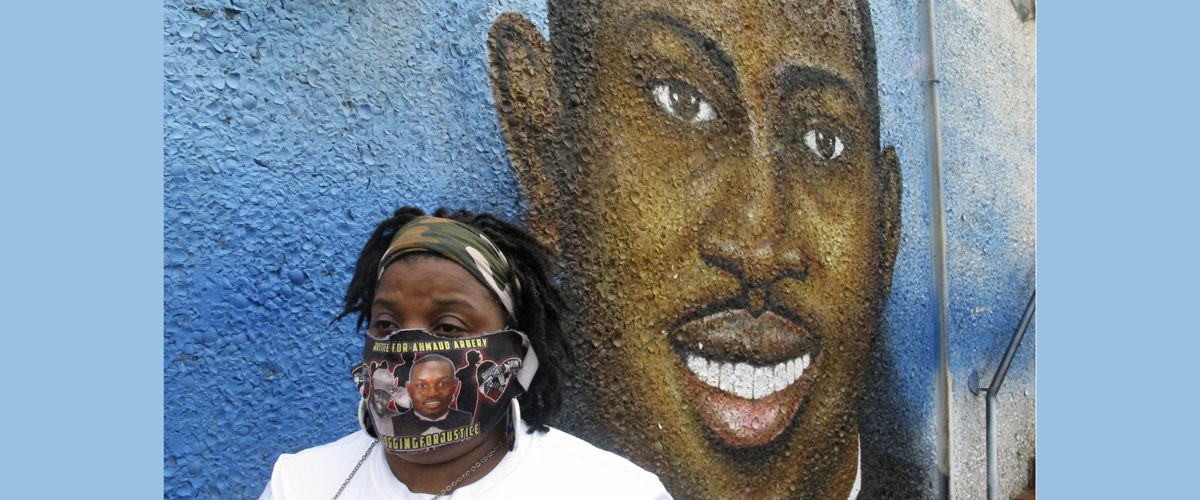I pounded the arm of my chair as each of the jury decisions, nine counts in all, were read by the judge in the case of the Ahmaud Arbery murder trial. The triggerman was found guilty of all counts. The other two co-defendants, guilty on the majority of counts.
Then my emotions transfigured into a whirlwind.
The original two Glynn County, Ga., prosecutors did nothing to bring the perpetrators to justice. In fact, the initial district attorney has been indicted by a grand jury for her failure to pursue justice in this case. If the video of Arbery’s murder had not been leaked, no one would have been held accountable for this vigilante execution.

Ken Sehested
These events magnify the utterly arbitrary nature of our criminal justice system. If bystanders had not videoed the shooting by police of multiple unarmed Black men in recent years — George Floyd, Eric Garner, Walter Scott, Rayshad Brooks, Philando Castile, Oscar Grant, et al. — no light would have been brought to bear, no truth would have been disclosed, much less prosecuted.
Just imagine the extraordinary number of similar incidents that have not been recorded.
Ignored. Forgotten. Erased from history. Agony perpetuated. Familial grief silenced. Cries swallowed. Justice suborned.
And then my mind traversed to the penal system’s dysfunction. Travis McMichael, his father Gregory McMichael, and William Bryan — all of whom will spend all or much of their lives in prison — will be delivered to a criminal justice institution where cruelty will compound suffering, both for inmates and correctional officers.
The penal system in the U.S. is not constructed to enhance justice but to magnify and rationalize vengeance. Vengeance is the norm in prisons — not reform, not penitential encouragement, not preparing victimizers to rejoin productive roles in civil society.
Compounding violence is its rationale. Deepening pain is its mission. Perpetuating and escalating criminality is its result.
Justice was not served in this judicial decision. Justice for Arbery — and countless others — would mean they are living still. What has been accomplished is accountability. For that we can properly celebrate. It is a start. But the journey to justice is still long.
“As has been said, the truth will set us free, but first it will make us miserable.”
People of the Way rightfully applaud this case’s resolution, even while continuing to grieve the odds against Black bodies’ (and other people of color) claim on equal protection against malevolent treatment.
The need for people of faith to deconstruct white accomplice in structural complicity in racial animus does not conclude with this trial. If anything, the verdict must intensify our labor on behalf of the Beloved Community.
As has been said, the truth will set us free, but first it will make us miserable. Such misery, though, is the needed prologue to discovering our penitential posture and beatific vocation.
God is not yet done with us. Fortified, persistent and vigorous thanksgiving is our proper response for such a time as this.
Ken Sehested is the curator of prayerandpolitiks.org, an online journal at the intersection of spiritual formation and prophetic action.
Related articles:
Dear white people like me, this is what it means to accuse Black people of causing the very crimes committed against them | Opinion by Mark Wingfield
In Wisconsin, the NRA won | Opinion by Mark Wingfield
The air that surrounds the Ahmaud Arbery trial and so many trials | Opinion by Brittini Palmer
Color-blindness, consistency and the Kyle Rittenhouse verdict | Opinion by Andrew Manis
Kyle Rittenhouse, whiteness, and a divinely ordained license to kill | Opinion by Robert P. Jones


